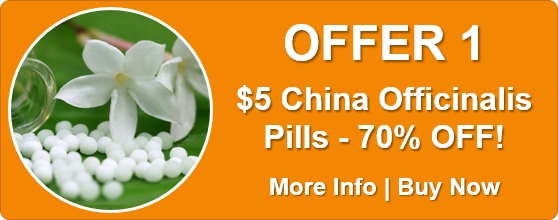Know Your Remedies: Aloe socotrina (Aloe.)
 Common Names: Socotrine aloes.
Common Names: Socotrine aloes.
General Information
Aloe Socotrina is prepared from a plant common in East and South Africa. It’s a remedy that suits symptoms associated with irritable bowel, ulcerative colitis, or portal congestion (raised blood pressure in the portal and other veins draining into the liver). The abdomen may feel full, dragging, congested, hot or burning. Urging or involuntary stools (bowel motions) are common and the person may pass urine and faeces at the same time. They may dream of soiling themselves or have an unusual sensation of “a plug” within the body. Mental Emotional Symptoms
- Dissatisfied and irritable, especially with the discomfort or pain.
Abdominal and Digestive Complaints
- Spastic or ulcerative colitis.
- Pains in the abdomen before passing a stool (bowel motion).
- Sudden urging for stool – may drive out of bed in morning.
- Urgent stool at 5am.
- Diarrhoea in early morning.
- Involuntary or unnoticed stool on passing flatus (wind or gas).
- Stools mixed with jelly-like mucus.
- Weakness after the stool.
- Swollen and congested haemorrhoids.
- Haemorrhoids like “bunches of grapes”.
- Hot flatulence.
- Portal congestion. Venous congestion with heavy dragging.
Head Complaints
- Congestive, pressing headache, above eyes and relieved by cold compresses.
- Congestive headaches worsened by heat.
- Headache alternating with lower back pain.
Where do I find it?
Aloe Socotrina (Aloe.) is available from our online store as a single remedy, and as part of the following Complex (combination remedy): Irritable Bowel.
Home Treatment Guidelines
Acute, Self-Limiting Conditions
Conditions like colds or minor injuries, which are short-term and typically improve on their own, can be managed at home with homeopathy. However, in emergencies or if symptoms worsen, contact your healthcare provider.
Chronic Conditions
These home treatment instructions do not apply for ongoing issues, whether mentioned above or not, like persistent allergies or chronic pain. You should consult a qualified homeopath for a personalized treatment plan to achieve the best results with homeopathy for chronic conditions.
How to Take the Remedy for Acute Conditions
- Take one pill or five drops of the remedy. The frequency depends on symptom severity. As examples:
- For life-threatening symptoms, take every 1 minute and seek emergency help immediately.
- For mild symptoms, take every 4 hours.
- Stop taking the remedy once you feel better. Resume if symptoms return.
- If no improvement after four doses, choose a different remedy or consult a professional homeopath.
- For more details on dosing, refer to: How Often to Dose with a 30C Homeopathic remedy.
- For information on the different potencies, read: Guidelines on which potency to use
Additional Notes From Past Masters
Homeopathy is a 200-year-old system of medicine. Early homeopaths recorded detailed notes on how remedies worked, including initial tests, remedy relationships, and their experiences. These writings were shared to improve homeopathic practice and now offer fascinating insights into past uses of homeopathy. Here’s an example, edited and modernised for clarity, from Leaders In Homoeopathic Therapeutics (1898) by E. B. NASH M.D.:
Leaders In Homoeopathic Therapeutics by E. B. NASH M.D.
Aloe Socotrina (Aloe.)
Insecurity of rectum; rectum feels full of heavy fluid, which will fall out, and does, if he does not go to stool immediately. Diarrhea.
Solid stool, passing (in large balls) away involuntarily and unnoticed.
Great fullness and weight in whole abdomen, with feeling of weight in rectum and haemorrhoids protruding like a bunch of grapes; > by cold water applied.
* * * * *
This remedy should be considered alongside of Podophyllum because it is one of the so-called cathartics. Although one is as decided a cathartic as the other the characteristics which guide to their choice are very different.
Both are apt to be worse during hot weather.
Both are apt to be worse in the morning.
Both are often well supplemented with Sulphur.
But now let us look at some of the more marked and peculiar symptoms of Aloe. Stools yellow, faecal, bloody or transparent jelly-like mucus. Sometimes this jelly-like mucus (Kali bich.) comes in great masses, or “gobs,” and drops out of the rectum almost unnoticed. Again the stools are often passed involuntarily when expelling flatus or passing urine.
There seems to be not only an actual weakness in the sphincter ani, but a distressing sense of weakness. The rectum feels as if full of heavy fluid which will fall out of escape from the patient, and in fact does so if he doesn’t “git there, Eli”
This escape of stool with flatus in Aloe finds its counterpart in Oleander. No two remedies are more alike in this respect, though Muriatic acid is also similar.
Again a very characteristic symptom in the Aloe diarrhoea is “Great rumbling in the abdomen just before stool,” and the feeling of weight in the rectum already mentioned is not always confined to the rectum, but is also felt through the whole pelvis and abdomen.
Again, the rectum protrudes in Aloe like a bunch of grapes, and is relieved by the application of cold water. Muriatic acid is relieved by hot applications. Both of these remedies have blue hæmorrhoids; the Aloe itching intensely, while those of Muriatic acid are very sore and sensitive to touch, even of the bed clothes. In addition to the aggravations already mentioned, the diarrhea of Aloe is aggravated by walking or standing, after eating or drinking.
In dysentery there is violent tenesmus, heat in the rectum, prostration even to fainting and profuse clammy sweats.
The weakness of the sphincter ani is also found in constipation. It is a curious symptom, and I would not believe it until I had seen it with my own eyes. “Solid stool passing involuntarily, passing away unnoticed.”
I was called to treat a child five years of age suffering from birth with a most obstinate form of constipation. He had to be forced and held to the stool crying and screaming all the while being totally unable to pass any fæces even after an enema. After trying several remedies in vain, I asked the mother to turn the child over (he was in bed) to let me examine the anus and rectum. As she turned down the bed clothes to do so, a large chunk of solid fæces appeared in the bed. “There,” she said, “that is the way it is. Notwithstanding his inability to pass stool when he tries, we often find these things in the bed, and he does not know when they pass, nor do we.” I then gave a few doses of Aloe 200th and cured the whole trouble quickly and permanently.
Aloe like Podophyllum has also prolapsus uteri, and the feeling of heat, heaviness and fullness in the abdomen, pelvis and rectum guides to its selection. Like Podophyllum, also, its range of action is not wide, but positive, reliable and satisfactory.







